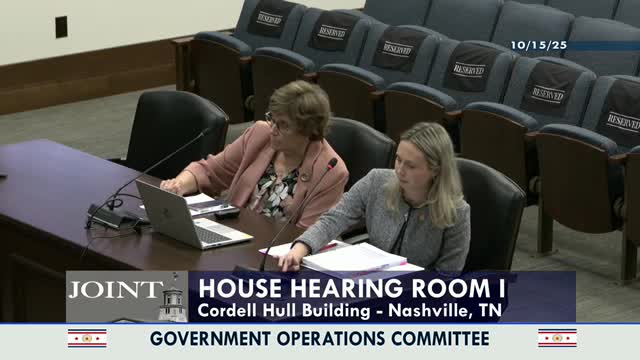State Board rule directs state portion of TISA funds be paid directly to charter schools
Get AI-powered insights, summaries, and transcripts
Subscribe
Summary
An emergency State Board of Education rule implements 2025 statute requiring the state portion of TISA funds to be disbursed directly to charter schools rather than through local education agencies (LEAs).
The State Board of Education presented an emergency rule implementing Public Chapter 456 (2025) that sends the state portion of Tennessee Investment in Student Achievement (TISA) funding directly to charter schools, rather than routing those state dollars through local education agencies.
Nathan James, State Board of Education staff, told the committee the rule "outlines the requirements for calculation, allocation, and disbursement of state and local funds to charter schools in Tennessee" and implements the new statutory requirement that the state share of TISA funding generated by a charter school student be paid directly to the charter school except in specified cases.
Mary Ann Derske, Chief Financial Officer, Department of Education, clarified the mechanics: "It is the state portion of the TISA funding that goes directly from the state to the charter school, so it does that piece of the charter school funding does not pass through the LEA anymore." She also explained that local districts must still account for revenue generated by students in their final financial reports, and that the state provides interim "true up" calculations in October, December, February, April and June, with a final reconciliation after the LEA's final expenditure report.
Representative Jeremy Glenn asked whether superintendents would have "no access" to the funds. The State Board and Department staff said districts will record the revenue on their reports and show a paper transfer to the charter school; the charter school is responsible for reporting actual expenditures.
The Senate recorded a 6-1 vote in favor with one no vote by Senator Oliver; the House registered a positive recommendation. Board staff said a permanent rule will be on final reading at the State Board's Nov. 21, 2025 meeting and that the State Board held a rulemaking hearing on Oct. 9 with no public comments.
Why it matters: The rule changes the path of state dollars for charter students and clarifies reporting and true-up schedules. School districts remain responsible for reporting the amounts generated by their students; charters receive the state share directly and report how those funds are used.
What’s next: The emergency rule moves forward as an immediate administrative implementation of statute; permanent rulemaking is scheduled at the State Board's November meeting.
